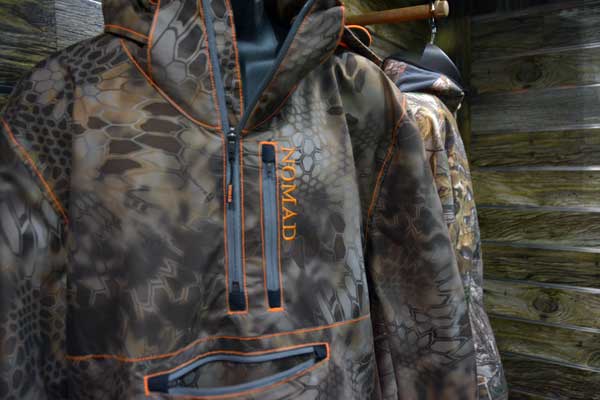
Comparing the two samples back in Copenhagen, her team found that the median size of a Bajau person's spleen was 50 percent bigger than the same organ in a Saluan individual. She also took data from a related group of people called Saluan, who live on the Indonesian mainland. “They were surprised I had heard of them.” We went around to different homes, and we would take images of their spleens.
#Nomad hunting portable#
“On the second visit, I brought a portable ultrasound machine and spit collection kits. “I wanted to first meet the community, and not just show up with scientific equipment and leave,” she says of her initial travels to Indonesia. During a trip to Thailand, she heard about the sea nomads and was impressed by their legendary abilities. Study author Melissa Llardo from the Center for Geogenetics at the University of Copenhagen wanted to see if the same characteristic was true for diving humans. Previous work showed that in seals, marine mammals that spend much of their life underwater, spleens are disproportionately large. How does the human body work? What roles do the digestive, reproductive, and other systems play? Learn about human anatomy and the complex processes that help your body function. You can technically live without it, but while you have it, the organ helps support your immune system and recycle red blood cells. Of all the organs in your body, the spleen is perhaps not the most glamorous. Now, a study in the journal Cell offers the first clues that a DNA mutation for larger spleens gives the Bajau a genetic advantage for life in the deep. These nomadic people live in waters winding through the Philippines, Malaysia, and Indonesia, where they dive to hunt for fish or search for natural elements that can be used in crafts.

#Nomad hunting free#
But a group of people called the Bajau takes free diving to the extreme, staying underwater for as long as 13 minutes at depths of around 200 feet. Most people can hold their breath underwater for a few seconds, some for a few minutes.

Your heart rate slows, your blood vessels constrict, and your spleen contracts, all reactions that help you save energy when you're low on oxygen. If you hold your breath and plunge your face into a tub of water, your body automatically triggers what's called the diving response.


 0 kommentar(er)
0 kommentar(er)
